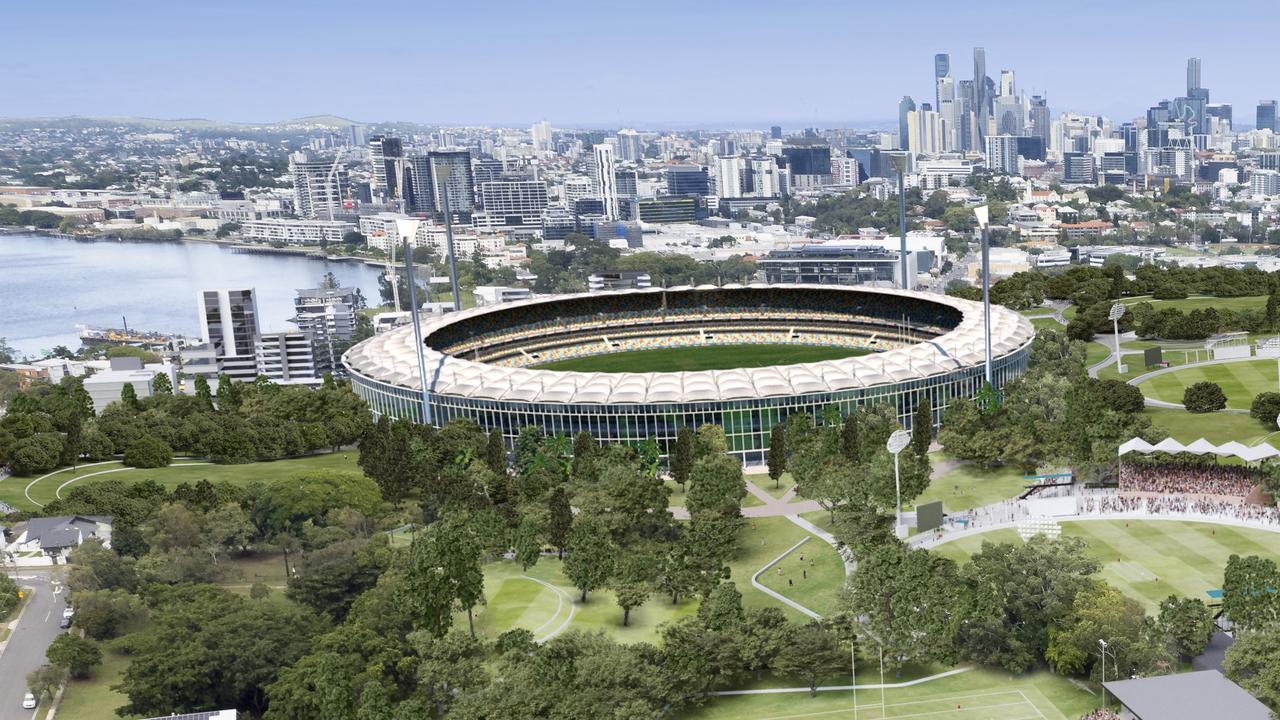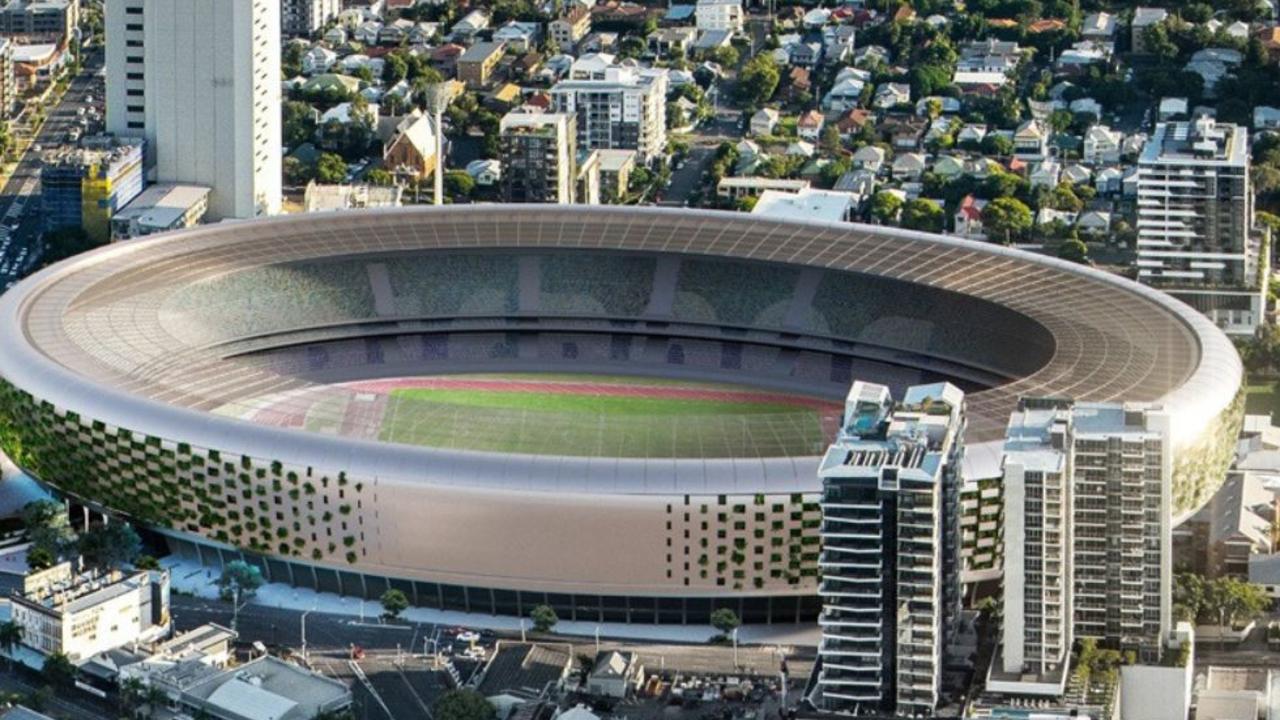Diving into an Olympic tourism bonanza
In the years following the dark days of the coronavirus pandemic, there looms a perpetual golden summer for Queensland’s battered tourism industry, Jeremy Pierce reports.

SEQ Olympics 2032
Don't miss out on the headlines from SEQ Olympics 2032. Followed categories will be added to My News.
It’s the Greatest Show on Earth and it’s Queensland tourism’s opportunity of a lifetime.
The 2032 Olympic Games is set to deliver Queensland’s tourism industry a $4.6bn lift that will boost an entire generation.
An economic assessment by leading analysts KPMG has found the benefits of hosting the Games should deliver results for more than a decade either side of the magical fortnight in 11 years’ time.
On top of an estimated $8.1bn in economic benefit and 91,000 full-time-equivalent jobs for Queensland, the study also predicts an uplift in international tourism and trade of $4.6bn. For context, international tourism was worth less than $7bn a year to the Queensland economy before the hit from Covid.
In the years following the dark days of the coronavirus pandemic, that looms as a perpetual golden summer for Queensland’s battered tourism industry.
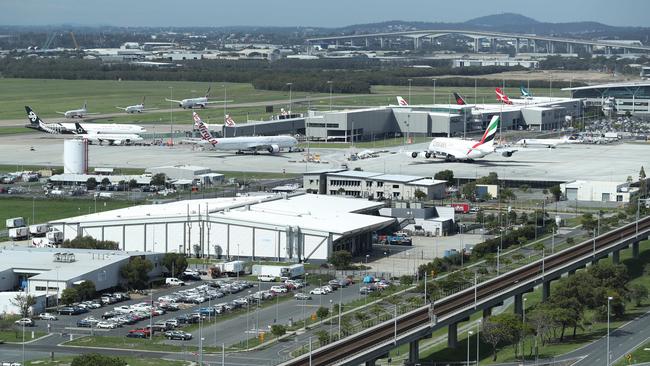
Queensland Premier Annastacia Palaszczuk said economic modelling showed the Olympics had the potential to drive our economic recovery for decades.
“We saw with the Commonwealth Games how a major sporting event can deliver years of employment for thousands of Queenslanders,” she said. “An Olympic Games could create jobs across generations in a way that we’ve not experienced in Queensland before.”
But like the nerve-racking wait for the final vote, nothing should be taken for granted.
Brisbane Airport executive general manager of communications and public affairs Rachel Crowley was working for the Australian Tourism Commission – now known as Tourism Australia, in the US during the 2000 Games and she said there was much to be taken from Sydney’s turn.
“Sydney was already globally known – it was Australia’s most well-recognised city and home of the iconic Opera House, but Brisbane is, on the other hand, largely unknown,” she said. “So the opportunity is infinitely greater and more exciting. The locations have to be spectacular.
“The beginning of the triathlon for Sydney, right beside the Opera House, was spectacular, as was the beach volleyball on Bondi Beach.
“We must make sure the television pictures tell the story of this beautiful, green city, with its winding river and hills, and extraordinary flowers, and homes on stilts.
“We have to use those images to motivate people to want to come here.”
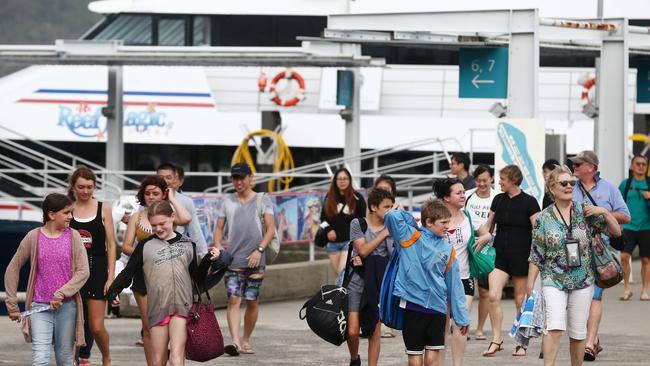
She said there were also lessons to learn from where Sydney fell short.
“The work has to continue well beyond the closing ceremony,” she said. “That is probably one of the biggest learnings from Sydney, the work really starts, from a tourism marketing point of view, when the Games are over.”
The airport expects to have about 40 million passengers a year by 2032, almost double the number of travellers before the pandemic, but chief executive Gert-Jan de Graaff said the lasting benefit would come once the Games have been and gone.
“The real benefit of increased visitation to a host city is experienced in the months and years following an Olympic and Paralympic Games, not during the Games period itself,” he said. “We have to turn our minds to the lasting legacies it can deliver.”
Star Entertainment’s $3.6bn Queen’s Wharf precinct under construction in the Brisbane CBD will come alive during the Games and the group’s chief executive Matt Bekier said there were enormous opportunities to bring the city to life.
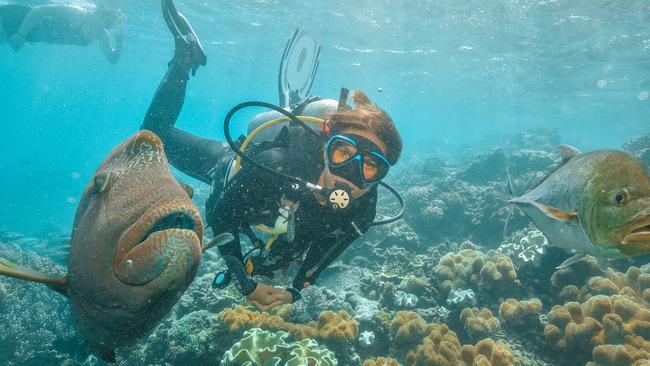
“Queen’s Wharf will have a lawn area on level seven that will be a public space with a natural amphitheatre and room for about 4000 people,” he said. “That will be a great way to draw people into the CBD and have the city really come alive.
“We’re really excited about the opportunities for activations during the Games, but we also need to find ways to build the excitement in the years leading up to it to ensure Brisbane is the best Games ever.”
Queensland Tourism Industry Council chief executive Daniel Gschwind is excited about the potential of the Games to “define” Brisbane and the state.
“This is our home and we want to be able to show off our home to the world in the best possible way,” he said.
“When friends come over to your home, you always want to spruce up the place a bit and we have a similar opportunity here with the Games to spruce up the place, the infrastructure, the public spaces – the parts that will be a real legacy of the Games.”
Born in Switzerland, Mr Gschwind has called Queensland home for 35 years and remembers packing the family up for a road trip to Sydney during the 2000 Olympics. He said the excitement around Sydney at the time offered an enormous opportunity that Queensland could harness.
“It was a real moment in time where I felt like I could show off to my friends and family living overseas that we were here in this place that was the centre of the world’s attention,” he said.
BY THE NUMBERS
$4.6bn in estimated economic tourism revenue for Queensland
$8.5bn in estimated tourism revenue for Australia
$8.1bn for Queensland and $17.61bn for Australia in quantifiable economic benefits
40 million passengers at Brisbane Airport (increase of 100 per cent on 2019 levels)



